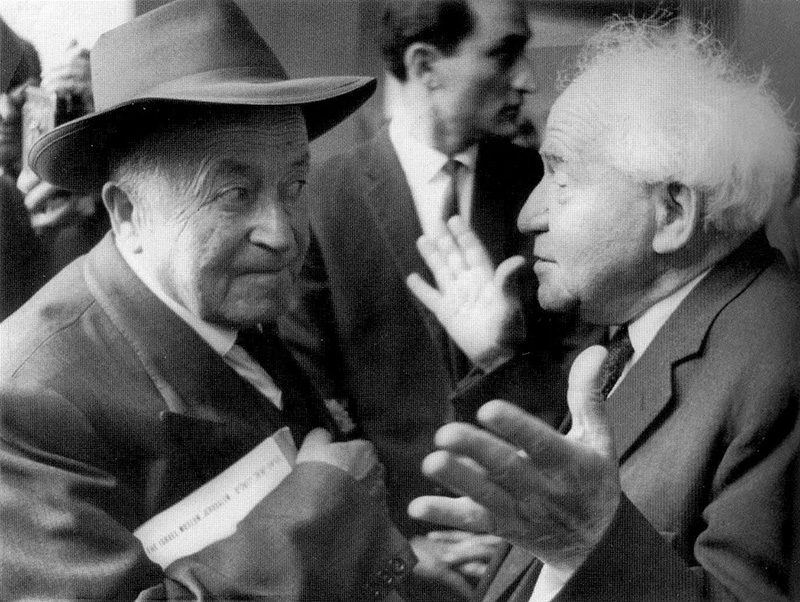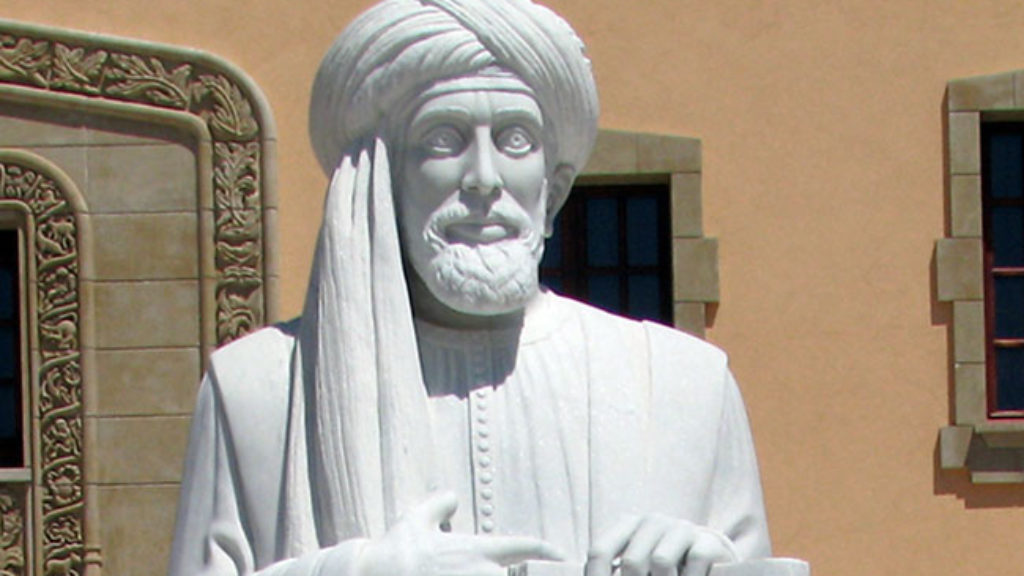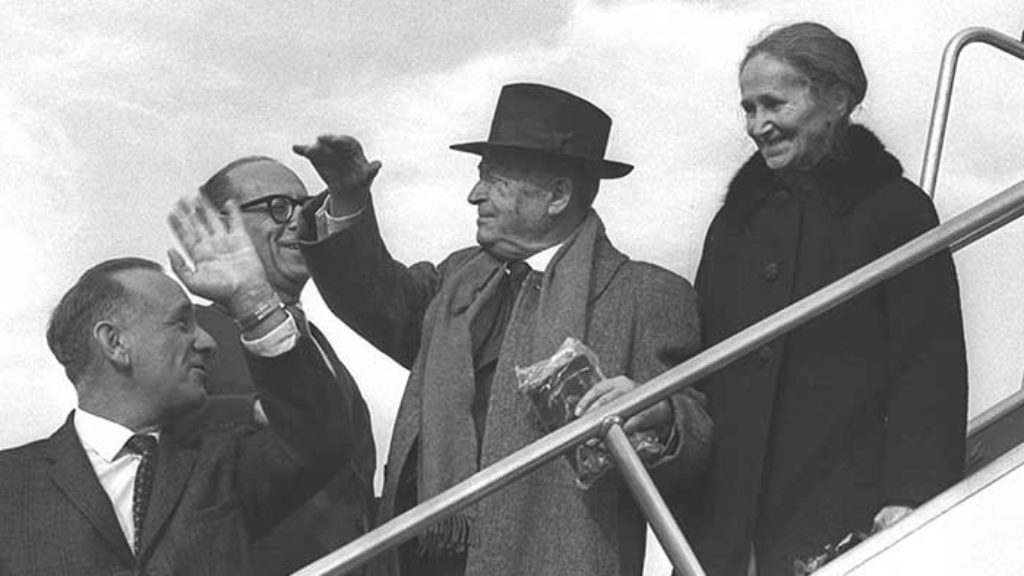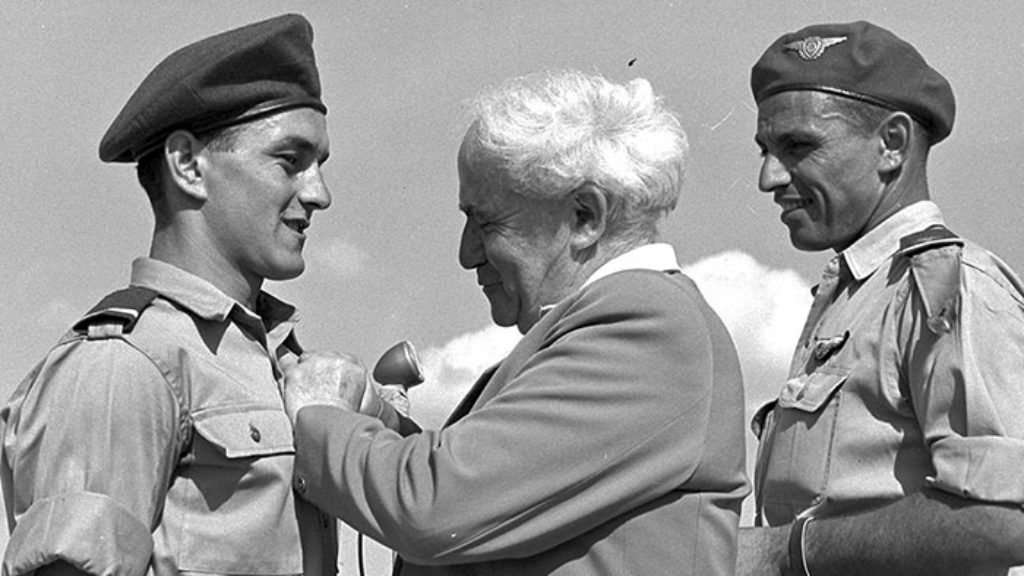“The Secret of Our Army’s Endurance”
This war just goes on and on. If it doesn’t
stop soon, the world will be nothing but ashes, God forbid. It’s like a wild beast, this war—
it’s devoured the best of our young men.
I tell you, it’s the end of the world!
—S.Y. Agnon, To This Day
Having spent the years of the Great War in Berlin, Leipzig, and elsewhere in the Second Reich, Agnon came to his aversion to war and militarism honestly. Three decades later he would again witness military conflict up close during the 1948 Israeli War of Independence. As an Austrian citizen living in Germany between 1912 and 1924, Agnon spent the war years evading the draft, for which he was eligible by law if not by temperament. Later in life, as a deeply respected but publicly reticent writer-sage, Agnon would dodge questions about politics. When asked for his thoughts about a certain matter, he would reply, “I once wrote a story about it.” Unlike many authors and musicians, artists and actors, who regularly pontificate on matters of the day, Agnon saved his imagination for his fiction.
Yet at a certain age and about certain topics, Agnon began to open up. And because it was exceptional, whenever Agnon did speak out, it was noteworthy. In 1964 when the journalist Geulah Cohen asked him to share his thoughts on the significance of a Jewish army defending the State of Israel, Agnon loosened his tongue. His reflections, recorded almost six decades ago and translated and presented below, are still relevant and resonant in our troubled times.
Cohen (1925–2019) was an underground announcer for the Lehi radio station, later a reporter for the Maariv newspaper, and still later a politician. During her years at Maariv, she offered a weekly feature that posed a set of questions to a handful of public figures, men of letters, politicians, and the like, presenting their responses as an edited symposium (the column was titled HaShulhan HaMerub’a: The Square Table). Agnon was interviewed for the feature three times over the years, and his entries are reprinted in MeAtzmi el Atzmi (Schocken, 1976), a posthumous collection of his nonfiction writing. Emuna Yaron, the author’s daughter and executor, mentions in an editorial note that Cohen told her that she would interview Yaron’s father and then write up his responses herself, and then Agnon would review the text before publication. The columns retain an oral quality, without Agnon’s writerly precision but retaining his distinctive voice.

On September 27, 1964—the eve of the holiday of Simchat Torah, exactly fifty-nine years before the events that plunged us into our present war—Cohen asked her subjects for their thoughts on the Israel Defense Forces. There was no specific precipitating military event; in fact, it was a period of relative calm in the Jewish state, destined to be punctured fewer than three years later by the Six-Day War and nine years later by the Yom Kippur War. Instead, the panel—which also included the then–chief of the general staff, Gen. Yitzhak Rabin; philosopher Nathan Rotenstreich; poet Haim Gouri; and parliamentarian Moshe Unna of the National Religious Party—was asked to consider how the holiday’s celebration of the completion of the yearly Torah-reading cycle might be compared and contrasted to military might as embodied by the IDF. If Jewish life, literature, and learning are marked by a set of spiritual and cultural ideals, what might be the animating spirit of a Jewish fighting force? “One can kill without knowing why; but none can fight to the death—if that’s what’s called for—without knowing for what purpose,” Cohen suggested. She quotes an Israeli soldier who blushed and bashfully told her, “We needn’t feel guilty for the fact that in order to live we must kill.” Cohen poignantly editorialized that “our lives are entrusted to that blush.” Yet she challenged her respondents to consider complacency and the competing “cult of power” that some thought were creeping in and around the IDF as the sixteen-year-old state was entering its adolescence. The tenor of her questions concerned the higher intention one must have in fighting for Israel, what in halakhic language is termed the lishmah. “To fire a weapon after reading the Tanakh, the Book of Books, should mean something different than pulling the trigger after having read a weapon manual.”
But even here, when Agnon does address current events, he maintains something of his customary mask. He is skeptical about Israeli militarism—if not the IDF itself and its soldiers, for whom he demonstrates affectionate respect—and Jewish history’s sudden turn to the sword, the rattling of which he fears will awaken desires that have been dormant since the Judean revolts against the Romans. It is likely that, despite his acknowledgment of the obvious defense needs of the young state, he was anxious about what this development in Jewish life, the cost of sovereignty, might wreak on Jewish ethos, culture, and religious observance. For that reason, he hopes for an army of poetic souls who learn Torah and maintain Jewish tradition, thereby counteracting the establishment of a cult of war.
When a man makes war, he has no goal other than saving his own life, that the enemy should do him no harm. Not everyone is always able to pray with proper intention and not every day does one successfully study Torah out of love. Yet one should not cease from his habit, even for a day. So, too, while serving in the army. Not every person is capable of waging war with the proper intent, yet one should not cease his habit even for one day. A soldier is not always on a level of high spiritual devotion, yet he carries out his exercises even absent the lofty ideals. It is enough for him to taste, but once, the reason for his mission, so that his heart remains directed to his Father in heaven.
On the verse, “Whenever Moses held up his hand, Israel prevailed; but whenever he let down his hand, Amalek prevailed” (Ex. 17:11), the Sages asked, “Did the hands of Moses make war when he raised them or break war when he lowered them? Rather, the verse comes to tell you that as long as the Israelites directed their eyes upward and subjugated their hearts to their Father in heaven, they prevailed; if not, they fell” (Mishnah, Rosh Hashanah 3:8). In this way Torah and heroism are fused together. If we focus on the two things as one, then we prevail both in war and in Torah.
I believe that there is no physical might without spiritual strength, that there is no strength without Torah. In other words, no physical power stands on its own unless it comes from a place of spiritual power, which we call an “ideal.” Your question regarding the “Lord of Hosts” and the army (“hosts”) of Israel is a very deep and difficult one. I actually have a set opinion about this, but I need to clarify a bit more about why I have this idea. About God it is written that on Mount Sinai he appeared as an old man wrapped in a tallit, and at the splitting of the Red Sea, he appeared as a warrior. That is how Israel should be when we have to engage in spiritual matters, wrapped in a tallit; but when it is a time of war, God forbid, then even a bridegroom charges out of the bridal chamber and the bride herself from under the wedding canopy! We should always trust that the two are interdependent. If there is security there is also the possibility of engaging in Torah matters; if there is Torah there is strength, if there is strength there is Torah. We see from Bar Kokhba that his soldiers observed the mitzvot, meaning that they did not forget the commandments of God, and that is how our army should be: not an army for the sake of an army, what you call a cult of power, but rather for the sake of the Torah. If I am able to dwell here in my Jerusalem neighborhood, Talpiot, which is right on the border, and study a page of Gemara, it is because I know that the Israeli Army protects. Although the Torah itself protects those who learn it, authority has been given over to the defenders of Israel to carry that out. There were times past when the authority was given to the great heroes of Israel. There were times in Israel when strength was needed, like the Benjaminites, David’s warriors, and other such Jews were found when needed. It is no simple matter that we have multiple nations that want to annihilate us. Not to mention all those nations that would be pleased to have that work done by others.
You know to desecrate the Sabbath is forbidden, but in an emergency, those on the front are permitted to desecrate the Sabbath and go to war “even on matters of hay and straw” (Eruvin 45a), meaning even when the enemy comes only to despoil the town, not to take their lives. Nowadays it is a moment of crisis and emergency, but complacency is human nature. We forget. Jews are a people who forget very quickly, which is why the Torah cautions us to “remember what Amalek did to you. . . . Do not forget!” (Deut. 25:17, 25:19). If it said “remember,” why is there a need to add “don’t forget”? Because perhaps you have forgotten to remember. . . .
For now, our army is different than every other army.
—Do you see that picture on the wall? It’s an aerial photograph of the Old City of Jerusalem. See what’s signed on it below? “To Agnon from the Central Command.” I received it last year on my seventy-fifth birthday, when two generals came and gave it to me as a gift from the army. An important lady who was present asked, “Is there any other nation in the world whose army gives gifts to its nation’s man of letters?”
But, God forbid, if the army forgets the Torah—“If the Lord does not watch over the city, in vain does the watchman look out” (Ps. 127:1)—it is liable to become like the army of any other nation. Right now there is no such danger. It is just possible that sometimes they exaggerate unnecessarily. For so many generations of our exile we did not take up the sword; therefore, the desire to do so now is awakened to a greater degree.
I think the army is nothing to play around with, but dabbling in pacifism is a bad business. Regarding our regular pacifists, who bask in their pacifism, the Sages have already said, “Whoever shows mercy to the cruel ends up being cruel to the merciful.” I had one of the Shomer HaTzair members visit, from that left-wing youth movement. In response to the opinion he shared with me, I responded that the time when the people of Israel outstretched their necks for slaughter has passed. They claim that an army and war are not fitting for the people of Israel. Is it “fitting” for our enemy to slaughter us and for us to be slaughtered? Regarding the messianic era, it is said, “Nation shall not lift up sword against nation” (Isa. 2:4)—but to achieve that we must be worthy of the messiah.
I once wrote a satiric parable, “The Wolf Shall Dwell with the Lamb,” about the 1929 Arab Riots [published in the journal Moznayim in 1930]. I did not intend it, heaven forbid, against specific people, only against the ideals of pacifism. I didn’t form my opinion from ideologies—neither from pacifism nor its opposite. I learned about pacifism the hard way [when Agnon’s Jerusalem home was marauded in the attacks]. But this story caused an uproar at the time among the pacifists of the Brit Shalom movement [which argued for Jewish-Arab coexistence and renouncing the hope for a Jewish state], until all but one, Arthur Ruppin, distanced themselves from me and would not even say hello. Only in time, after some soul-searching, did they renew friendly terms.
I don’t like the military. I would not talk about a Gentile army this way. I am not moved by anything practical or technical. I was once at Yad Vashem on Memorial Day, and they used all kinds of special effects, like torches and things like that, things that forty years ago or more I could not tolerate in Reinhardt’s theaters in Germany. I want to tell you, I know that everyone gets excited at the army parade on Independence Day; I know that women are very excited about it, but it doesn’t make an impression on me. I have no sense for things that can be done with such techniques. Yet when I witnessed, here in the Talpiot neighborhood, the young men in the War of Liberation, how they defended us and how they would come from their posts on Shabbat eves to hear Kiddush—then I couldn’t hold back tears.
So what am I saying to you? Israel, which had the insight to make the great and valiant warrior King David into a poet of the Psalms, one who sits and passionately studies the Torah—perhaps this is the secret of our army’s endurance.
Comments
You must log in to comment Log In
Suggested Reading

The Ubiquitous Gabirol
Solomon ibn Gabirol plunges into poetry, writes S. Y. Agnon, medabek atzmo be-charuz: glued to his craft, beading words with devotion.
At Professor Bachlam’s
A lost chapter from Agnon's final, classic novel Shira, translated here for the first time.

On Agnonizing in English
For the Hebrew reader, S. Y. Agnon is not merely canonical, he stands almost outside of time.

Strategic Imperatives
In his new book, Charles Freilich examines the question of how future governments ought to cope with Israel's fundamental defense predicaments.
gershon hepner
ETHICS AND ETIQUETTE
Ethics states the rules of what is right,
etiquette is how to be polite.
Sometimes they’re not the same. When being crude,
you don’t do wrong, although you may be rude,
and when you are excessively strait-laced
you may be proper, but not to my taste.
While ethics usually trump etiquette,
bad etiquette makes people more upset
than ethics do, when they have violated
a code whose rules are always understated,
and therefore often poorly understood,
so no one really knows what’s good.
Ethics can’t be Jewish since they are not national,
Superseding sense, not purely rational,
they often violate the rules of eti-
quette, although unlike them hardly petty.
The military variety aren’t based on arms,
but men who fight with them, as once sang Virgil,
and a greater poet, author of the Psalms,
King David, and World War Two winner, Winston Churchill.